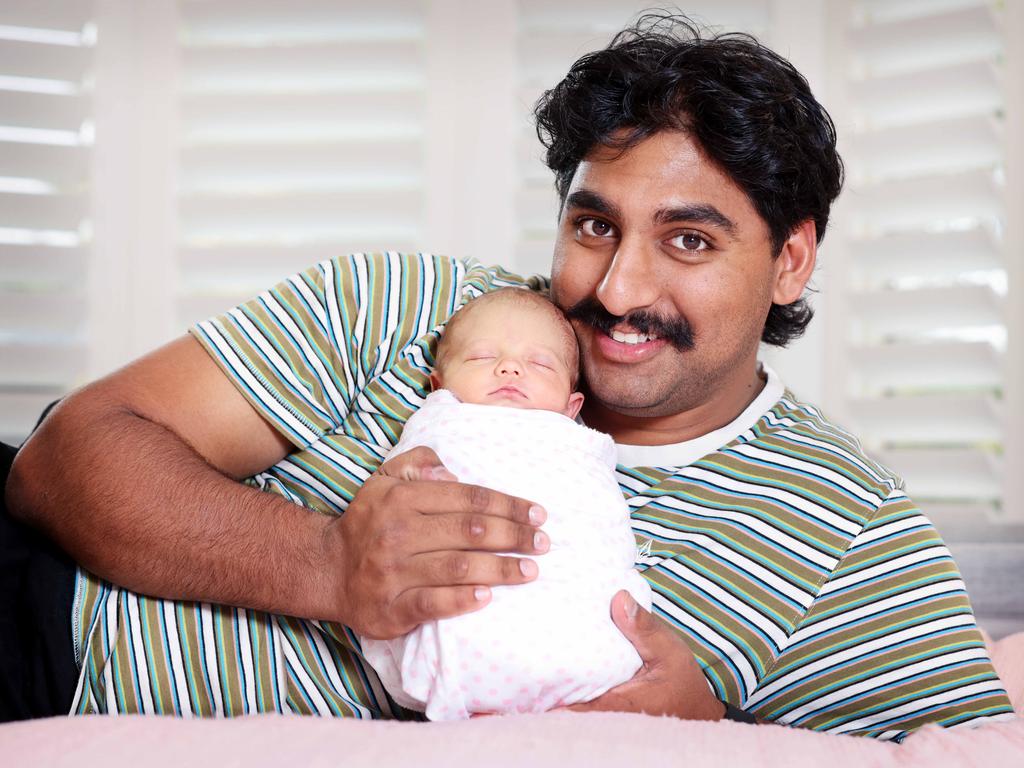Fertility in Australian men: Lifestyle changes a must for failing fertility rates, experts say
Fertility experts warn that Australian men are suffering from poor fertility and should pay attention to their biological clocks if they want to father a child. Here’s what you can do to give yourself the best shot at success.
Lifestyle
Don't miss out on the headlines from Lifestyle. Followed categories will be added to My News.
Fertility experts warn that Australian men suffer from poor fertility and should pay attention to their biological clocks if they want to father a child.
The peak time for men’s fertility is between the ages of 30 and 35, but lifestyle changes can help boost fertility in older age groups.
SEE BELOW FOR EXPERT TIPS ON HOW TO INCREASE YOUR CHANCES OF SUCCESS
A poor diet, too much alcohol and lack of exercise can all hamper conception.
City Fertility Brisbane specialist Andy Stamatiou said: “Without scaring anyone, Australian men don’t have the best sperm in the world.
“Sperm quality, or lack thereof, can provide an indication of overall health.
“Increased obesity levels, lifestyle factors like excessive smoking, drinking and lack of physical activity, can all play a role.
“Stress, blood sugar and hypertension can also affect sperm quality and libido.”
The amount of viable sperm produced globally has more than halved in the past 50 years
“We know that women have a limited egg reserve whereas men continue to produce sperm, it’s just that the quality of it gets lower the older they get,” Dr Stamatiou said.

Michael Van Der Meer and his wife Alice welcomed their baby girl Ocie last weekend.
The Ipswich couple had been trying for a baby for two years without any luck, before seeking advice from the experts.
“When we went to see Dr Stamatiou and he explained to us how best to maximise our chances of having a healthy baby, I hopped to and changed my lifestyle,” the 25-year-old said.
“We wanted a baby so badly that we both did everything we could to make it happen.
“I focused more on my fitness, started eating healthier, cut down on junk food and decreased my alcohol intake — this put us both into a better headspace.”
As well as cutting out smoking and decreasing alcohol intake research shows that men who take antioxidants as a supplement had fewer DNA-damaged sperm than men who didn’t bother.
Food rich in antioxidants include leafy greens vegetables, beans, peas (folic acid); tomatoes, apricots, watermelon (lycopene); Brazil nuts, beef, turkey and
chicken (selenium); seeds and oils (vitamin E); oranges, grapefruit, and kiwi fruit (vitamin C).
HOW TO INCREASE MALE FERTILITY
KEEP YOUR COOL
High temperatures can damage sperm, so avoid hot tubs or spas, especially if you are trying to
conceive. Car seat heaters are also not beneficial and can lead to higher-than-normal temperatures you know where. Avoid sitting laptops on your lap, the heat generated by the computer can lead to higher-than normal temperatures down there. Wearing breathable bottoms, tight underwear or bike shorts can affect sperm.
KEEP THE WEIGHT OFF
Maintaining a healthy weight is crucial when it comes to increasing your chances of conceiving. Being overweight or underweight can interfere with your hormone balance and result in a lower sperm count. Health conditions like diabetes can also affect sperm health.
3. Increase your intake of antioxidants
Research has shown that men who took antioxidants as a supplement had fewer DNA-damaged sperm than men who didn’t bother. Food rich in antioxidants include leafy greens vegetables, beans, peas (folic acid); tomatoes, apricots, watermelon (Lycopene); Brazil nuts, beef, turkey and chicken (Selenium); seeds and oils (vitamin E); oranges, grapefruit, and Kiwi fruit (vitamin C).
QUIT SMOKING/LIMIT DRINKING
Studies on smoking and semen quality suggest that smoking affects sperm count, motility
(swimming ability), and even sperm shape. Male smoking habits can also affect the fertility of a female partner, lowering IVF success rates and increasing risks of pregnancy loss.
Too much alcohol can decrease fertility. Moderate consumption doesn’t necessarily impact sperm health, but for the best chances, reducing intake is advised.
AVOID TOXINS AT WORK
Research has found that men who work on farms, or spend their days painting, varnishing, welding or working with metal have lower sperm counts. Where possible avoid contact with toxins and hazardous substances and wear protective gear where you can.
TREAT UNDERLYING MEDICAL CONDITIONS
Untreated diabetes can result in infertility and one-third of those with the condition don’t know they’ve got it. Urinary tract infections left untreated can also lead to fertility issues and repeated infections, including STIs can reduce the motility of sperm. Other conditions like coeliac disease, anaemia and thyroid disease if undiagnosed can result in infertility.
HAVE MORE SEX
To keep sperm firing it is suggested that couples try and have sex at least twice a week, not just at the ovulation time. Research shows that short periods of abstinence can benefit sperm health, so don’t be too regimental about it.






